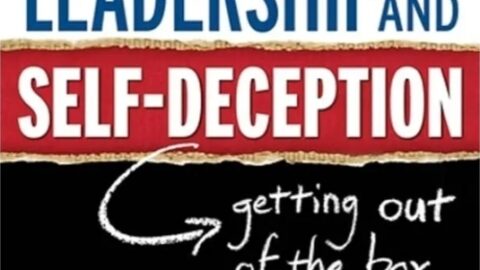Authors note: In our first, article, we talk about being born into a culture and being aware of the pitfalls this has toward ourselves and posterity.
In our second article, we want to talk about steps we can take to combat these pitfalls and human traps we all need to overcome as they shape our worldview.
Combating the internalization of culture, especially when it has been manipulated or corrupted by powerful interests, requires a conscious effort to critically evaluate the beliefs, values, and practices that shape one’s worldview. Here are several strategies for resisting the uncritical acceptance of cultural norms:
1. Develop Critical Thinking Skills
- Question Assumptions: Constantly ask yourself why certain norms, values, or practices exist in your culture. What purpose do they serve, and who benefits from them?
- Seek Multiple Perspectives: Cultures are complex and multi-faceted, so explore different viewpoints within your society. Understanding dissenting perspectives can help challenge the dominant cultural narratives.
- Examine Power Structures: Consider who holds power in your society and how that power influences cultural norms. Ask whether those in power might be promoting certain values to maintain control.
2. Study History and Cultural Evolution
- Understand Cultural Origins: By studying the history of your culture, you can learn how certain practices and beliefs developed over time. This can reveal how cultural norms were shaped by specific events, rulers, or elites.
- Identify Changes Over Time: Cultures evolve, and some norms that seem “natural” today may have been introduced relatively recently. Understanding these changes can help you see how they were influenced by external forces, including political or economic agendas.
- Spot Manipulations: Historical and social studies can uncover how certain cultural elements may have been manipulated to serve the interests of elites or to maintain social order.
- There Are Really Only Two Types of Government: Republic & Oligarchy
- Power Tends to Concentrate Into the Hands of A Few, An Oligarchy
- The Founding of America Wrestled Power Away from the British Oligarchs (Empire)
- Tragedy and Hope: A History of the World in Our Time (Oligarchy & the Illusion the Two-Party System)
- Who Rules America?
- World War 3 Isn’t What You Think; It is the Globalists vs the Rest of Us
- The Global Financiers Agenda to Gradually Takeover Government and Industry: The World
- America & the World Are Returning to Feudalism
- Tower of Basel: The Shadowy History of the Secret Bank that Runs the World
3. Challenge Social Conditioning
- Consciously Break Patterns: Take active steps to break out of automatic behaviors or thought patterns that reinforce cultural norms. This could involve questioning daily habits or societal expectations that you previously took for granted.
- Reject Stereotypes and Prejudices: Societal stereotypes and prejudices are often ingrained through cultural conditioning. By recognizing and challenging them, you can move beyond superficial cultural assumptions.
- Practice Mindfulness: Mindfulness can help you become more aware of your thoughts and emotions, allowing you to recognize when cultural conditioning is influencing your behavior or mindset.
4. Engage with Other Cultures
- Exposure to Different Cultures: Actively seek out opportunities to engage with other cultures, whether through travel, study, or interacting with people from different backgrounds. This can give you alternative perspectives and highlight the relativity of your own culture.
- Learn from Diverse Ideas: Explore different cultural philosophies, belief systems, and traditions. Understanding how other societies operate can help you see the arbitrary nature of many cultural norms.
- Challenge Ethnocentrism: Recognize that your culture is not the only way of organizing society. By reducing ethnocentrism (the belief that your culture is superior), you become more open to questioning your own cultural assumptions.
5. Practice Autonomy and Personal Agency
- Develop Your Own Values: Reflect on your personal values and how they may differ from those imposed by your culture. Actively choose which values to embrace and which to discard.
- Exercise Moral Independence: Make moral decisions based on personal reasoning and ethics rather than automatically accepting cultural dictates. Moral independence fosters resilience against cultural pressures.
- Engage in Civic and Political Participation: Be involved in local or national decision-making processes. By exercising agency within your society, you can advocate for cultural changes that align with your values.
6. Engage in Intellectual Inquiry
- Read Critical Literature: Seek out books, essays, and research that critique the dominant culture. Engaging with thinkers who challenge conventional wisdom will sharpen your ability to question cultural norms.
- Explore Philosophy and Sociology: Studying philosophy and sociology can provide tools for analyzing how culture is constructed and maintained. These disciplines encourage questioning the foundations of societal norms and beliefs.
- Debate and Discuss: Engage in discussions with others who are also interested in questioning cultural norms. These conversations can open up new perspectives and allow you to refine your critical understanding.
7. Build a Support Network
- Find Like-minded Individuals: Connect with others who are interested in resisting cultural conditioning. A support network can provide encouragement, share resources, and help validate your feelings of alienation from mainstream culture.
- Join Activist or Grassroots Movements: Becoming part of a movement that challenges cultural norms, whether related to social justice, environmentalism, or political reform, can give you a sense of purpose and community while working against ingrained societal practices.
- Seek Mentors: Look for mentors who have successfully resisted internalizing harmful cultural norms. Their guidance can provide practical advice and moral support in your own journey.
8. Practice Media Literacy
- Critically Analyze Media: Mainstream media is often a vehicle for reinforcing cultural norms, especially those controlled by powerful interests. Practice media literacy by questioning the messages you receive from television, social media, news outlets, and advertising.
- Seek Independent Media: Consume media from a variety of independent and alternative sources to counterbalance the narratives propagated by mainstream media. This can help you see issues from multiple viewpoints and avoid uncritically internalizing dominant cultural narratives.
- Recognize Propaganda and Manipulation: Learn to identify propaganda techniques and how they are used to shape public opinion. This can help you resist manipulation and stay more attuned to how culture is being influenced.
9. Cultivate Ethical and Spiritual Practices
- Examine Ethical Frameworks: Engaging with ethical systems such as Buddhism, or Christianity or other philosophical approaches can help you develop a set of guiding principles independent of cultural norms.
- Personal Spiritual Development: For those inclined towards spirituality, developing a personal spiritual practice that emphasizes introspection and inner wisdom can provide a counterbalance to external cultural influences.
- Focus on Universal Values: Consider emphasizing values that transcend specific cultures, such as compassion, truth, justice, and respect for human dignity. These principles can serve as a foundation for resisting harmful cultural conditioning.
10. Challenge Corrupt Systems
- Be Informed about Oligarchic Control: Recognize the ways in which oligarchic interests shape culture to maintain control. This awareness helps prevent the internalization of manipulated cultural values.
- Support Decentralization Efforts: Advocate for decentralized systems of governance, media, and economy. Supporting grassroots and local movements can weaken the grip of centralized power structures that shape culture.
- Participate in Civic Resistance: Engage in activism, protest, or advocacy aimed at challenging systems that perpetuate cultural corruption. Civic resistance can promote cultural reforms that are more equitable and representative of broader social values.
Combating the internalization of culture is a process that requires self-awareness, critical thinking, and active engagement with the world around you. By questioning cultural norms, seeking alternative perspectives, and asserting your personal values, you can resist the influence of powerful entities that seek to manipulate culture for their own benefit. The journey involves both intellectual exploration and practical actions, including media literacy, ethical reflection, and political participation, all aimed at fostering greater autonomy and empowerment.







